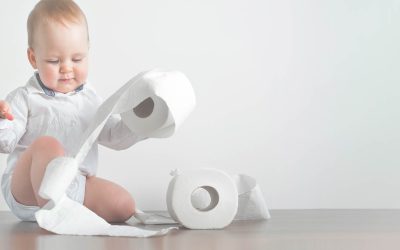Breastfeeding Woes – Attached To My Breast Milk Pump AGAIN!
I’m a new mom, again. This is our third baby in four years, and I’m a pediatrician, so I feel like I have the ‘mom thing’ down pat. Of course, it is never easy dealing with the repetitive and seemingly hourly wake-ups, battling fatigue, hormone fluctuations, and chasing around the older siblings. This I haven’t gotten used to.
Baby feeds well, gains weight and all is right in the world. NOT SO for so many moms, myself included.
For me – and many other moms – the hardest part of having a newborn can be breastfeeding. I think popular culture has lead many to assume you deliver the baby, pop the baby on the boob and it’s all good. Baby feeds well, gains weight and all is right in the world. NOT SO for so many moms, myself included. In my experience at least 90% of new moms have some difficulty with breast-feeding. For me and the many moms I speak with this leads to feelings of failure, inadequacy, and often guilt when formula is introduced. People often don’t speak about their breastfeeding challenges, which only adds to the stigma.
In my experience at least 90% of new moms have some difficulty with breast-feeding. For me and the many moms I speak with this leads to feelings of failure, inadequacy, and often guilt when formula is introduced.
Breastfeeding was the most challenging thing I have ever done – more challenging than residency, fellowships, and exams. Our oldest son was colicky and irritable and wanted milk in large volumes and quickly! My body was hard pressed to produce enough milk let alone keep up with rate at which he wanted it. We tried it all – pumping, not pumping, tube feeding, cup feeding, formula… In the first two months of his life I spent upwards of 15 hours a day preparing to feed, feeding, or cleaning up after a feed, not to mention the every other day visits to the pediatrician’s office for weight checks. It was PAINFUL, EXHAUSTING, STRESSFUL and HARD. No one prepared me for that. But I was obsessed with making it work, and we did. By four months he settled (and was on solids to help fill him up) and I continued to nurse him until he was 13 months old. All good things are worth fighting for, and it became the thing I most valued in my early parenting life.
In the first two months of his life I spent upwards of 15 hours a day preparing to feed, feeding, or cleaning up after a feed, not to mention the every other day visits to the pediatrician’s office for weight checks. It was PAINFUL, EXHAUSTING, STRESSFUL and HARD.
So what have I learned from this less-than-ideal experience? A whole bunch of tips:
Skin to Skin
Try to place baby at the breast as soon as you are able after delivery. Delay can hamper feeding. Keeping the baby near the breast often may mitigate some breastfeeding issues.
Latch
Seek guidance in latching your baby. Many mothers do not find latching baby on to be natural and easy. If baby isn’t latched well, they will not be able to transfer milk well, and your body will not respond by making more milk. This downward spiral is the reason many women feel they are unable to breastfeed. If you are having lots of nipple pain when feeding, please ask a lactation consultant or physician to examine your latch.
Supply and Demand – Use A Breast Milk Pump?
The more milk that comes out, the more milk you’ll produce. How to increase milk supply? Feed! Your body should make enough milk to feed your baby. Trust in that. If you are concerned that you don’t have enough, you can try pumping with a breast milk pump or hand expressing after feeds. This will stimulate a greater supply.
See more on Breastfeeding Woes.
Dina is a wife, mother of 4, and adrenaline junky. She loves to share children’s health information from her professional and personal experience. More About Dr Dina.










